For the last few weeks, I’ve been preparing for a debut reading of my new memoir-in progress, Lady Buddha and the Temple of Ma on November 11, 2009. It’s part of a Multicultural Symposium titled “Mixed: The Politics of Hybrid Identities at Lewis and Clark College here in Portland. I visited the venue for the reading yesterday and was overwhelmed to see so many seats to fill! 
A great part the success of my work in radio and theater has involved knowing how to promote. For theatre it used to entail sending out lots of postcards and posting flyers of the production and calling newspapers and radio stations in hopes of getting mentioned or interviewed. In my national radio documentary work, it used to involve sending out postcards and cassettes and more recently CDs to station managers and program managers with hopes of getting airplay. We still send out CDs but also offer stations the option to download the audio directly for broadcast.
Now there are so many options to getting the word out that doesn’t involve spending a great deal of money especially if you don’t have much of a budget. For this reading event, I asked a graphic designer to make a postcard but also come up with a graphic I could send out online. Then I sent out evites and set up an event page on Facebook. I’ve been following this up with emails to my email list. I got a free trial at Constant Contact to see how I like it. There is a bit of a learning curve but I’m finding it to be good way to send out your email list.
Though I send out a few postcards, I generally opt to have a lot of postcards or small flyers I can take with me throughout the day or to events. That way if I see a friend or meet someone new, I can hand them the info about the event or radio show.
I also have been having good response to tweet messages about events and radio programs particularly my weekly live arts show, Stage and Studio, on KBOO 90.7 FM. I performed a short reading from a different part of my memoir-in-progress on my radio show and let people know about the upcoming public event.
I’m really excited about debuting this new work and the Templeton Council Chamber is a warm inviting space so I’m looking forward to reading and performing my work! I haven’t spent a ton of time publicizing this but hopefully I’ve reached a lot of friendly faces who will be in the audience. Together with the colleges promotion, we’ll fill a lot of those seats!
Anyone else have success with low to no-cost promotional ideas for your artistic work? Please share them if you do!
And if you’re in Portland come see my reading/performance November 11th at 7-8pm. I’d love to see you!

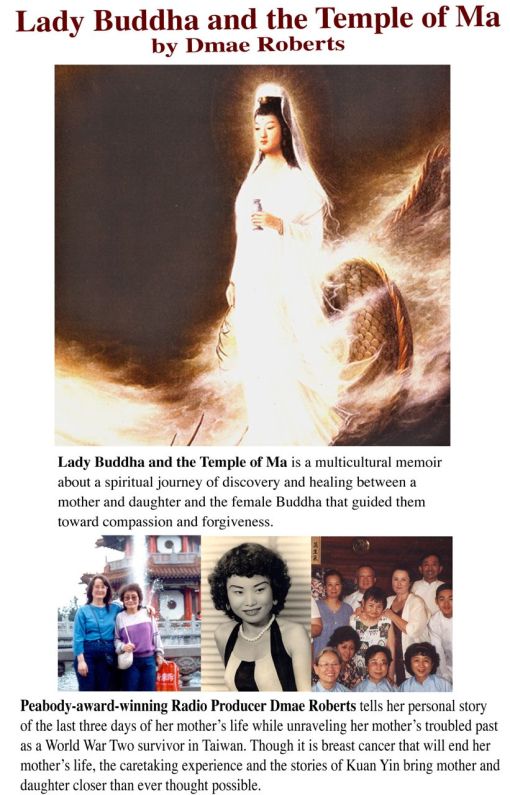
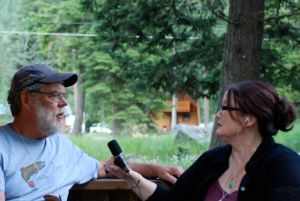
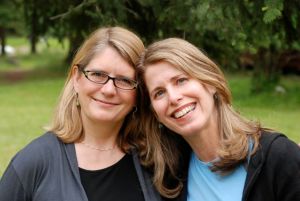

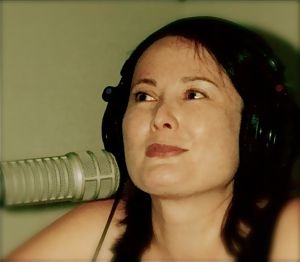




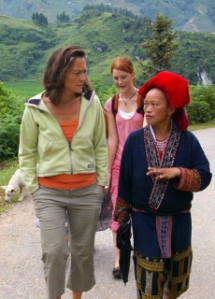
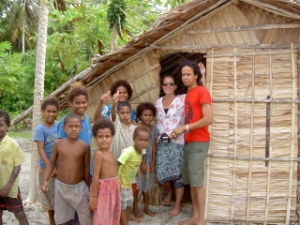
August 29, 2009
The DIY Girl
Posted by Dmae Roberts under bliss, dreams, freelance, hard work, radio producer, writer | Tags: artist, Comments, Destination DIY, DIY, independent, Julie Sabatier, networking, women, writer |1 Comment
Julie Sabatier (Photo: Cameron Browne)
There’s nothing more DIY than funding your own bliss and independent radio producers really know how to do practically everything themselves.
One of the talented and inventive radio producers I’ve worked with is Julie Sabatier. She produces an amazing show , Destination DIY, about revolutionary do-it-yourself projects and really explores the topic in unusual ways. Her most recent show describes various way people represent themselves. I found the “avatar” section really fasincating especially in light of all the social networking sites now. You can hear it online as well as other fascinating shows. Sabatier has built up a following through podcasting her show as well as distributing it regionally.
Sabatier recently wrote in response to the “Brain-picking” posts and described an inventive way she deals with numerous requests:
I thought this was a fabulous idea to give a primer to people as well as make $2 each time. Check out her “How to Make Radio” zine as well as her online archives of shows. We’ll be hearing a lot more from Julie Sabatier and Destination DIY in years to come!
Share On Facebook